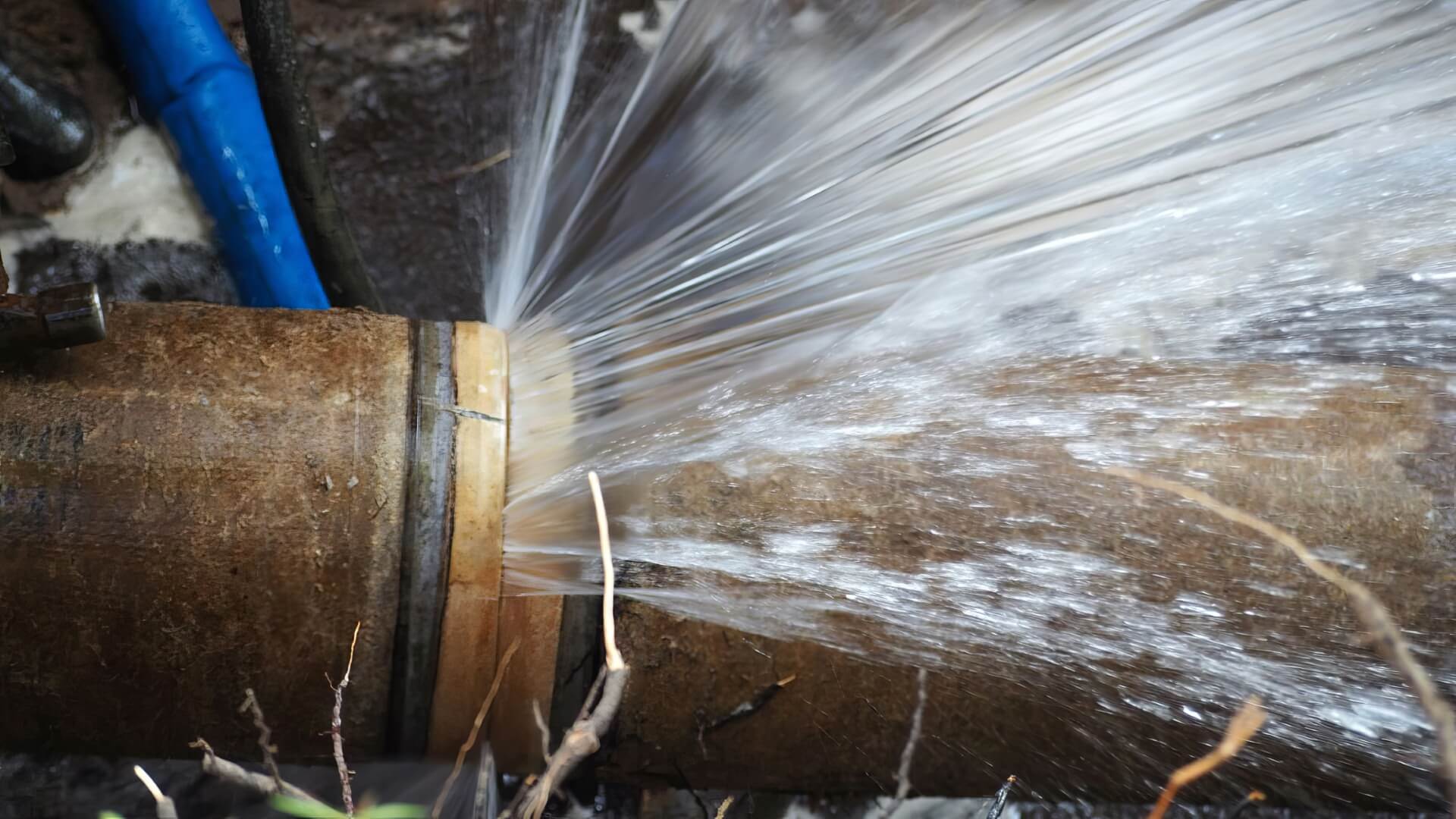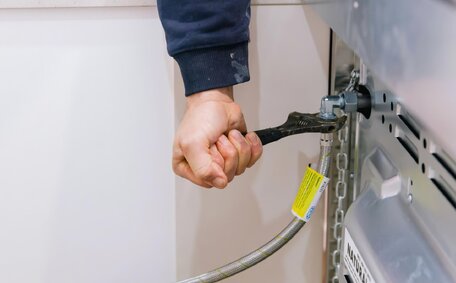How hot water systems work
Hot water systems function by heating a set volume of water within a storage tank or by instantaneously heating water on demand in tankless models. In a traditional storage tank water heater, incoming cold water enters the tank through the cold water inlet where it’s warmed by electric heating elements or a gas burner. During high-use periods such as bathing, electric water heaters ensure a continuous outflow of heated water as incoming cold water refills the tank.
As the heating elements or gas burner heat water, it rises, making more hot water available at the top tank area. Gas hot water systems have a long lifespan, generally lasting between 10 and 15 years.
Tankless water heaters, when water is detected, or on-demand systems, rapidly heat the liquid as it flows through coils or a heat exchanger. They supply hot water only as needed, tapping into your water supply without maintaining a whole tank at temperature.
Gas tankless heaters are equipped with burners whereas electric models utilise heating elements. They provide hot water on-demand and generally outlast their storage tank counterparts.
Determining if your hot water system capacity is adequate
Assess if your water heater tank meets your household’s daily hot water needs by considering the number of residents and typical usage. On average, a person uses approximately 75 to 150 litres of hot water daily for showers, washing dishes, and laundry.
As a result, a four-person household might use more than 300 to 600 litres of hot water daily for showering alone.
The standard recommendation is for your water heater to have a capacity of 150 litres for the first bathroom, plus an additional 115 litres for each subsequent bathroom. A 4-bedroom, 2.5-bathroom home should typically have a water heater with a minimum capacity of 380 litres to ensure an adequate supply. Tankless systems should offer a flow rate of approximately 11 to 19 litres per minute to suit average households.
If you often find yourself without hot water, it’s probable that your heater’s capacity is too small for your household’s requirements. Upgrading your tank to a larger capacity or investing in multiple tankless units can also help meet demand, ensuring hot water doesn’t run out fast. Preventive maintenance, such as tank flushing and anode rod replacement, is also crucial.
Common reasons hot water runs out quickly
Quick depletion of hot water may be caused by increased demand or faults within the system’s components:
- Excessive demand - An increase in residents or prolonged periods using your water heater for a hot water shower can decrease heating efficiency and deplete your hot water supply.
- Undersized tank - If the capacity of your hot water is too small your heater will swiftly deplete it with normal usage. Upgrading to a larger tank may help.
- Faulty heating element - If your heating element is on the fritz, your heater run out of hot water could be a significant concern.
- Sediment buildup - Deposits from hard water lodged at the bottom tank area can accelerate wear on the lower heating element, affecting performance.
- Broken dip tube - Cracks in your dip tube could let cold water bottom the tank mix with hot water, resulting in sudden shortages.
- Thermostat issues - It’s crucial to make sure that the thermostat isn’t set too low, as it won’t be able to reach the needed water temperature.
- Lack of maintenance - Failure to regularly flush your water heater as preventative maintenance allows sediment buildup.
Monitoring changes in your hot water supply and recognising when to seek professional assessment for your heater is essential. Proper sizing and regular maintenance are key to averting your system running out hot prematurely.
Assessing water heater lifespan and when to upgrade
You might question whether your hot water system needs an upgrade if it’s been running for 10-15 years, although tankless heaters often have a longer reliable lifespan. Upgrading to a new, properly sized unit can pay for itself over time through utility savings and fewer costly repairs.
As your system ages, it becomes less energy efficient and more prone to problems like corrosion and sediment buildup which can shorten its lifespan.
Consider replacing your water heater if you’re wondering why you’re running out hot water quickly, especially if it’s over 10 years old or you find this occurring despite low usage. However, when operational expenses increase or failure is on the horizon, a new heater becomes the optimal choice for consistent, efficient hot water delivery.
Also, keep an eye out for signs your heater too small, such as unusual sounds, leaks, rust, or extended heat times, indicating insufficient capacity. Prevent hot water loss from scale accumulation by conducting regular tank flushing, thus extending your water heater’s service life.
The decreased frequency of hot water shortages in the first few years with a new unit can make the upgrade a valuable investment for your home. Contact our team - we offer water heater inspections to assess ageing systems and provide fair recommendations if replacement seems advantageous based on your situation.
The importance of maintenance
Maintenance includes draining the tank through the drain valve and rinsing it with a garden hose. Replacing the anode rod every 5 years will also protect the inside of the tank from corrosion.
Our licensed plumbers provide water heater servicing to guarantee consistently hot water for your home:
- Draining and flushing water heaters
- Testing and adjusting thermostats
- Inspecting and replacing heating elements
- Checking anode rods and dip tubes
- Purging water inlet screens of debris
- Inspecting pipes, fittings and valves
- Testing and servicing water pressure relief valves
- Verifying proper gas/exhaust venting (for gas heaters)
With services beginning at $99, our technician’s preventative maintenance guarantees a continuous supply of hot water. Promptly addressing issues can often prevent your water heater from unexpectedly running out of hot water. Having our team service your system every one to two years maintains it in dependable working condition.
Regular maintenance of your water heater can lead to significant cost savings by avoiding problems throughout its operational life. This prevents emergency breakdowns that could cause water damage and necessitate early replacements. Just a few hours of preventative service keeps hot water flowing reliably for years to come.
When DIY troubleshooting is sufficient vs. calling a professional
Knowledgeable homeowners can resolve simple hot water heater problems with DIY troubleshooting and maintenance. For complex repairs or deeper issues, professional plumbing services are recommended.
When DIY repairs may work:
- Altering the thermostat settings when water depletes faster than anticipated
- Draining and flushing sediment from the tank annually
- Replacing a leaking inlet/outlet hose, valve, relief valve, or anode rod
- Lighting, or when necessary, to turn off the pilot light on a gas water heater
- Checking electrical connections and resetting tripped breakers
Call a plumber for:
- A broken or cracked tank leaking water
- Problems with complex gas valve or thermocouple systems
- Faulty heating elements that need electrical expertise
- Persistent sediment buildup or corrosion
- A suspected broken dip tube mixing hot and cold water
- Inadequate hot water even after troubleshooting steps
- Safety issues like gas leaks or exposed wires
Our licensed plumbers, with extensive experience and technical skills, can precisely identify and tackle repairs of any scale. Call Beecroft Plumbing on 1300 349 338 and trust our experts to conduct thorough heater repair to restore your hot water system to working order quickly and safely.





